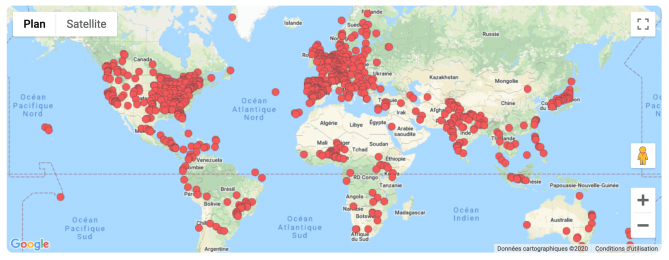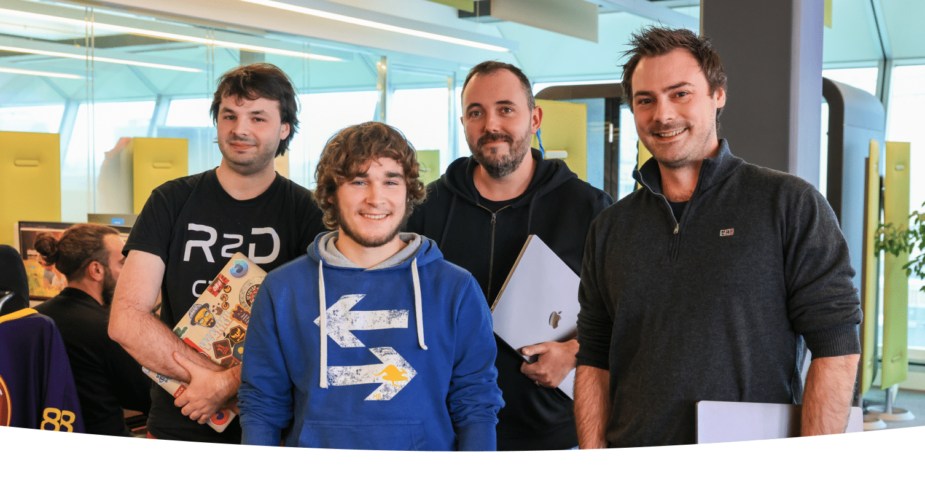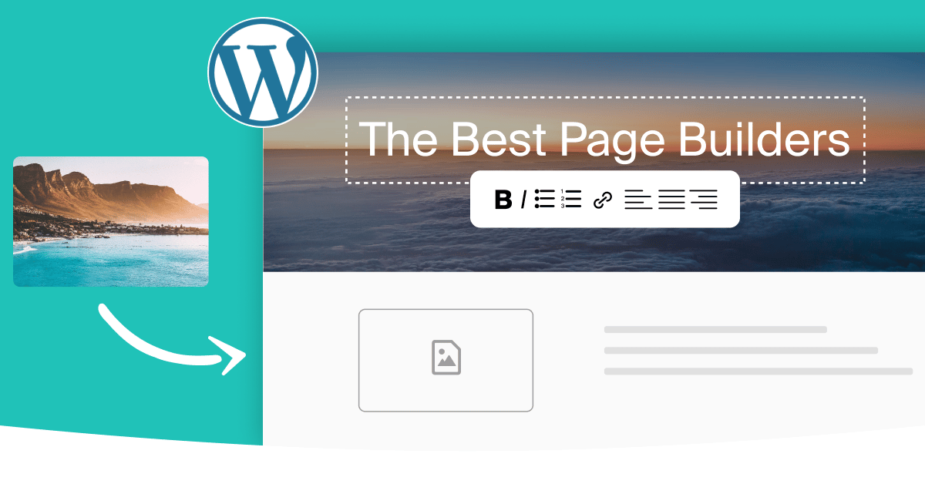Our aim with this article is to shine a light on the community responsible for advancing the flagship project that is WordPress. We will also answer some frequently asked questions about the famous CMS. Finally, we will explore some of the likely and possible ways in which WordPress will evolve.
WordPress has contributed to the digital revolution since 2003, its seemingly simple vision to “democratize publishing”. The open source CMS now manages the content of over 35% of the world’s websites. From blogs that have retained their anonymity to the most famous magazines, WordPress has evolved to meet all requirements and remain relevant over the years.
WordPress is very important to Infomaniak. We develop optimised WordPress hosting, exploiting the system’s full power and facilitating its use. Infomaniak has also been an official sponsor of the WordCamps since 2016. This year is particularly special as we welcome participants in the 2020 WordCamp to our head office in Geneva.
What are the WordPress values?
WordPress embodies the ambitious promise of enabling everyone to publish their content. It is focused on ordinary people, prioritising ease of use, accessibility and security. The project keeps its promise by applying open source principles, which guarantee maximum freedom.
Anyone can:
- Use WordPress for any purpose
- Study the source code and modify it as required
- Redistribute the software
- Distribute modified versions
These principles stimulate interest in WordPress as it offers something for everyone. People are free to develop it in any way they choose, which has encouraged the emergence of an ecosystem of apps, themes, plug-ins and other services associated with WordPress.
WordPress – a project driven by its community
The notion of sharing can be traced right back to the project’s origins in 2003. Back then, its co-founder Matt Mullenweg was faced with the challenge of finding an alternative to the b2/caflog blogging software, whose development had been discontinued. Matt Mullenweg joined forces with Mike Little to create a fork of the programme b2 (GPL licence), which became WordPress.
As is often the case, a Eureka moment was prompted by frustration. You can relive the early stages of the WordPress project in these now historic blog posts:
How does WordPress evolve? Who pushes it forward? Who funds its development?
WordPress is driven by a large and highly organised community inspired by its resolutely open-source approach and universal vision. Hundreds of thousands of contributors throughout the world facilitate the development and spread of WordPress:

Developers, graphic designers, entrepreneurs and content creators all contribute in different ways to the development of WordPress. These contributors, the vast majority of whom participate on a voluntary basis, are split into topic-based groups working on issues such as code, design, translations, web hosting, plug-ins, themes, community, etc.
The project owes its vitality to the diversity of its contributors
WordPress has such global reach because it is a living project. The open source software is primarily linked to the WordPress Foundation, which supports the community’s efforts by organising WordPress-related events and gatherings. Work carried out by the WordPress community team is a fundamental driver sustaining the project’s dynamism, creating synergies and enabling the recruitment of new creative talent.
“Contributing to the WordPress open source project by organising WordCamps and monthly meetups allows me to repay WordPress for what it enables me to achieve in my professional life. In particular, I value the atmosphere within the community – there is no judgement of people’s skill levels or any other type of discrimination.” Patricia BT, co-organiser of the Geneva 2020 WordCamp and meetups of the Geneva WordPress group
Other stakeholders are also involved in developing the open source software. These include Automattic, the commercial company set up by Matt Mullenweg, one of the WordPress founders. Other companies including Infomaniak provide support as sponsors of WordCamp events organised by the WordPress community.
What are WordCamps and contributor days?
The strength of WordPress lies in its community, which provides an ideal way in for beginners and new contributors. The WordPress “community” team regularly organises WordCamps to bolster and develop local communities and to enable WordPress fans to meet in person to learn and exchange ideas.
“I had only just discovered WordPress when I attended the first WordCamp in 2014. As a “complete newbie”, I thought I had no business joining such a gathering of aficionados!” says Michelle Bulloch, now head of communication for the 2020 WordCamp. “I am really very happy to be able to make a small contribution to a global project that has given me so much on a human level,” she confides. “You definitely need to experience a WordCamp first-hand to appreciate this…”
Everyone is welcome at WordCamps
All WordCamps are different, unique and above all, very accessible. They are generally held over several days and offer a varied programme of talks about WordPress. Topics of discussion include the development of WordPress themes, plug-ins and security techniques. Everyone from beginners to experts can come and network, get answers to their questions, and support others.

“WordCamps are events bringing human beings together, regardless of their skill level, qualifications, age, gender or religion. People primarily come to learn and share knowledge about WordPress, but end up mixing freely, making friends, sharing other passions, etc.,” says Maxime Culea, contributor day organiser and 2020 WordCamp co-organiser.
Contributor day
The contributor day provides a unique opportunity for people to do their bit and become part of the WordPress project. Anyone wishing to get involved can find out about the various ways in which they can contribute. They can count on support from experienced participants to ensure that their first experience goes well.
“The contributor day is the perfect opportunity to get on board. We aim to offer new collaborators a warm welcome giving them maximum confidence and autonomy,” says Maxime Culea, contributor day organiser and 2020 WordCamp co-organiser.
Would you like to take part in the next contributor day at the offices of Infomaniak in Geneva? Click on this link.
What is the difference between WordPress.ORG and WordPress.COM?
If you type “WordPress” into a search engine, you get two different URLs: wordpress.org and wordpress.com. These are in fact two separate websites managed by two different entities.
WordPress.org, the open source project
Distributes WordPress open source software that anyone can install through their chosen host. It offers the freest and most powerful WordPress experience, and is webmasters’ solution of choice.
WordPress.com, the commercial version
Run by the private company Automattic. This offers a hosted commercial version of the software as a turnkey solution. Although these facilities meet part of the demand, options are somewhat limited.
Close and profitable relations
Automattic makes a significant contribution to the open source project (wordpress.org), which forms the basis of its commercial business, wordpress.com. Its founder, Matt Mullenweg, also contributes personally to the wordpress.org project as a member of the open source community.
Which WordPress package should you choose?
If you are unsure of whether to pick wordpress.com or wordpress.org, we recommend wordpress.org, which gives you unlimited access to all available themes and plug-ins.
Infomaniak offers all-inclusive WordPress hosting, making it easy for you to get your WordPress site up and running:
- Install WordPress in 1 mouse click
- DIVI and Elegant Themes included
- Automatic recovery and back-up
- Proactive and automated security (malware and vulnerabilities)
- Just 1 mouse click to switch PHP versions
Premium hosting service provider Infomaniak works closely with web agencies and developers to ensure optimal distribution and hosting of WordPress.
Open discussion: what does the future hold for WordPress?
The WordPress.org roadmap focuses on accessibility. It sets out improvements to collaboration and the multi-user edition, enhancement of Gutenberg features, and finally, the keenly anticipated development of native support for multilingual sites.
Let’s take a moment to consider how WordPress might evolve in the coming years:
WordPress will drive the new generation of apps
Due to its popularity, WordPress is gradually becoming a benchmark. As such, we can imagine the software surpassing its current role as top content management system (CMS) to become a springboard for hosting all sorts of apps. This vision seems all the more likely due to the rising number and success of REST APIs.
WordPress might create websites on our behalf based on our answers to a series of questions
Where might the drive for simplification and accessibility lead? Answering a series of questions and clicking on a button to create a website could further speed up the process of producing a website.
Computers no longer needed to create WordPress websites
While Gutenberg offers a solution focused on visual drag and drop editing, users are likely to want to take this further. They are already contemplating a system where it is possible to create, move and edit blocks by hand using only a smartphone or tablet touchscreen.
Tell us what you think
WordPress powers 35% of the world’s websites, which means it might try to acquire the remaining market share. Matt Mullenweg set out this vision of the future of WordPress at the Disrupt NY conference. Is this a pipe dream or is it genuinely achievable? If you’re a WordPress fan like us, you’re sure to have an opinion.
- Will WordPress soon move beyond its role as a CMS?
- Can a website be created purely by answering questions?
- How about creating a site from scratch using a mobile phone?
- What ideas do you have for the future of WordPress?
Comment on this post in our social media with your opinions:
Our customer support is improving thanks to a software package created by our developers
Friday January 27th, 2023

 Français
Français Deutsch
Deutsch Italiano
Italiano Español
Español








You must be logged in to post a comment.